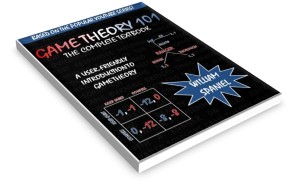This lecture explains the independence over lotteries axiom of expected utility theory.
Takeaway Points
- Let p be a probability between 0 and 1 and X, Y, and Z be outcomes (or probability distributions over outcomes). A preference is independent if and individual weakly prefers X to Y if and only if he prefers X with probability p and Z with probability 1 – p to Y with probability p and Z with probability 1 – p.
- Notice that Z occurring with probability 1 – p is the same in both of the lotteries. Consequently, it should not have any bearing on an individual’s preference between the those lotteries. This is what independence requires.
- While independence over lotteries is straightforward with outcomes, it gets trickier with compound lotteries (i.e., lotteries over lotteries). The next lecture shows an example where preferences can go wrong.

